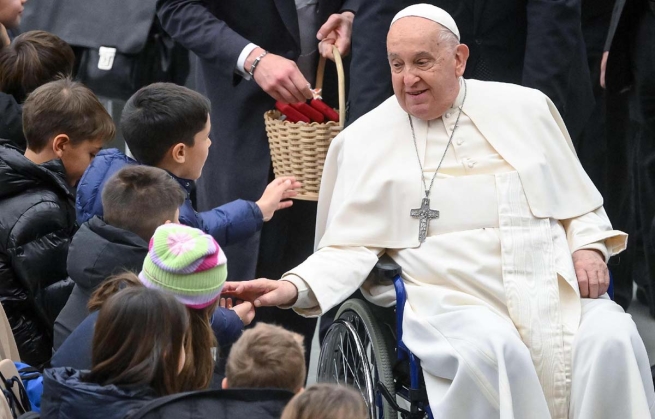"Hundreds of millions of children are forced to work, often in dangerous conditions," the Pontiff said. He cited as an example the case of a country in Latin America where children are used to harvest blueberries, a fruit that requires delicate hands. The Pope then touched on the dramatic issue of abuse, stating clearly that "the abuse of minors, of whatever nature, is a despicable act, an atrocious act. It is not simply a plague on society, no, it is a crime! (…) Even one case is already too many. ”
And widening his gaze, he also denounced other terrible violations of the rights of children and young people, such as trafficking in minors, mentioning cases of exploitation for prostitution, pornography and even for organ trafficking.
Pope Francis did not limit himself to just denouncing, but analysed the social and economic roots of this scourge: poverty, the lack of support tools for families, job insecurity and the moral degradation of the metropolises. He recalled that many children are involved in illegal activities such as drug dealing and that they often become victims, the result of a system that sacrifices them. “When we see these lost lives, too often we look the other way,” he warned.
So Pope Francis then appealed to consciences, institutions and the media, urging a collective awareness and recalling that everyone is called to do their part to ensure that no child is forced to become an adult too quickly. He invited individuals not to be accomplices of exploitation, adopting a greater awareness of consumerism: "How can I eat and dress knowing that behind that food or those clothes there are exploited children?" He also called on institutions and companies to commit to guaranteeing ethical investments that respect the rights of minors. Again, addressing the journalists present, he asked them to courageously denounce these injustices: "Do not be afraid, denounce!".
Reconnecting with the Gospel message, Pope Francis stressed that combating child exploitation is fundamental to building a better future. He quoted the words of Jesus: "Whatever you did to one of these least brothers of mine, you have done to me" (Mt 25:40), and observed that the happiness of the weakest is essential for the peace of all. Finally, he recalled the example of Mother Teresa of Calcutta, describing her as a "mother of the most disadvantaged" and inviting the faithful to follow her look of tenderness towards the invisible little ones.
The audience ended with a poem by the Saint who lived and worked in Calcutta, whose verses also include: "I ask for the right to be a child, to be hope, for a better world" and which ends with a question to which each individual must give an answer: 'Can I count on you?'"
As usual, at the end of his message, the Holy Father delivered his greetings in various languages to all the faithful present; and the General Audience ended with the Our Father and the Apostolic Blessing.


